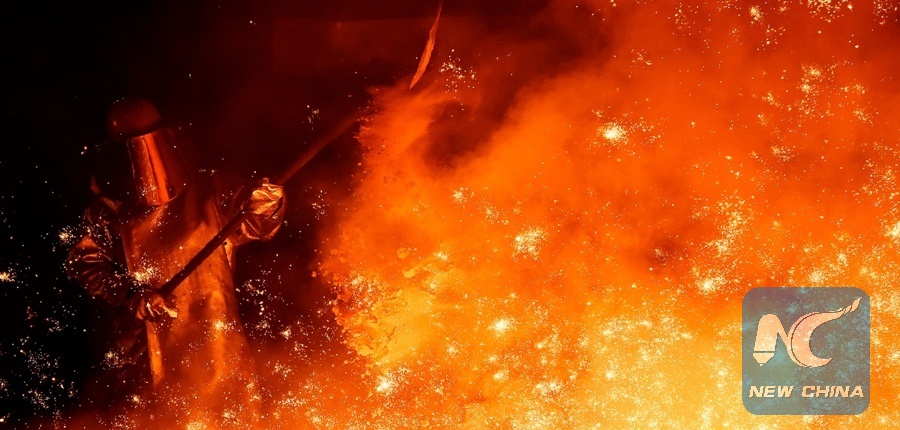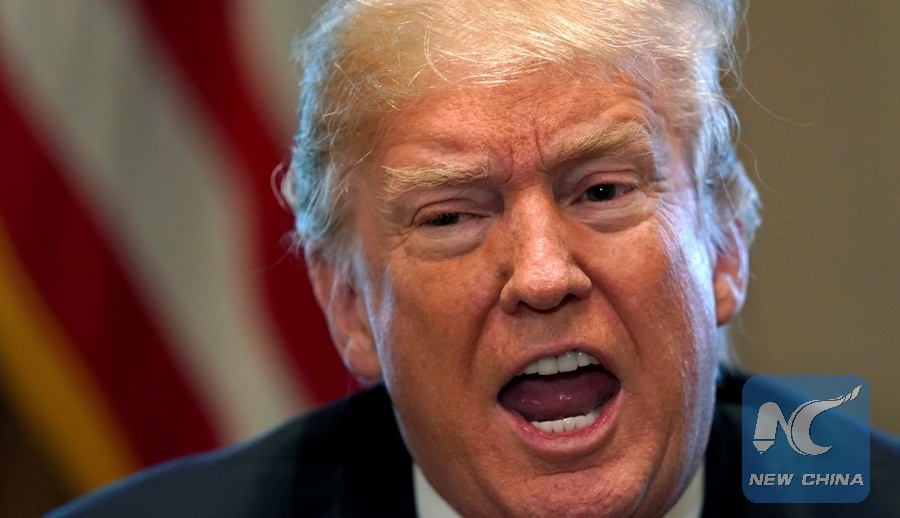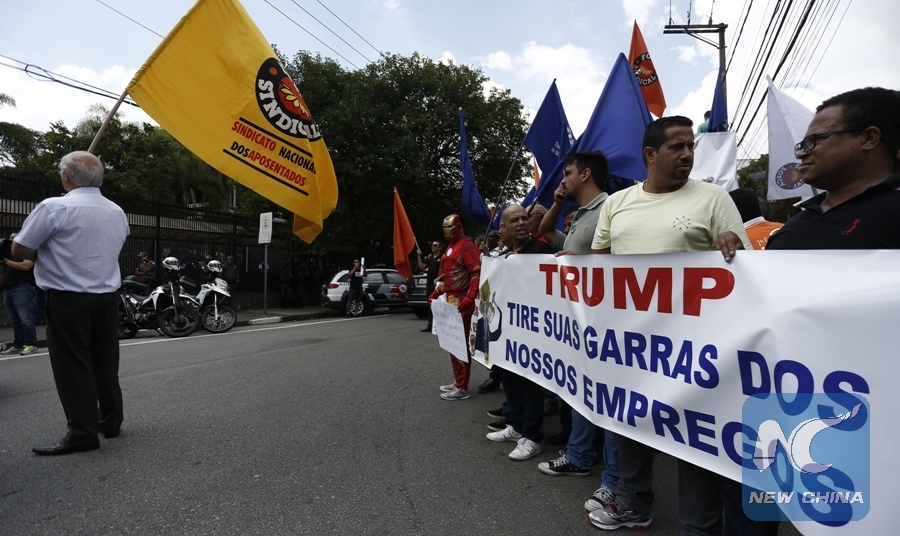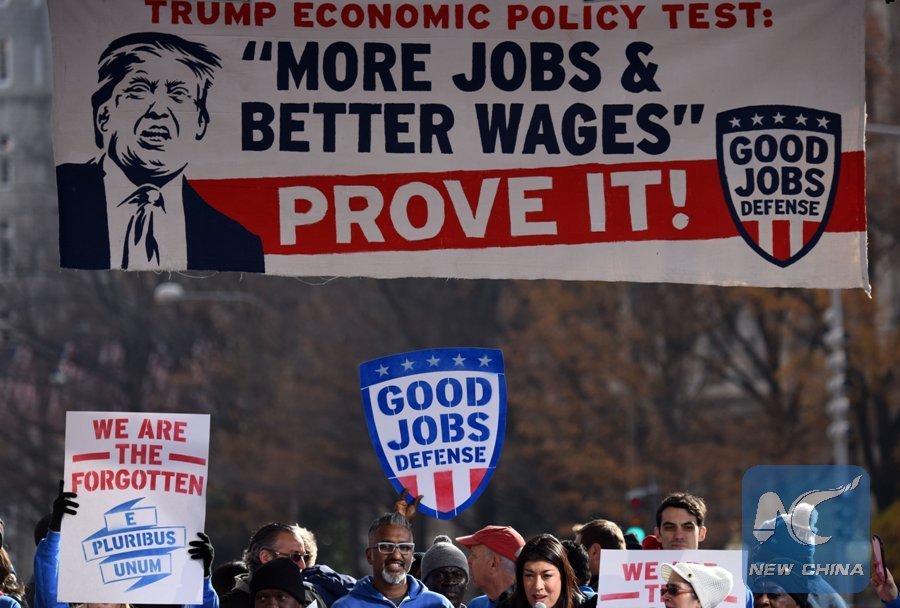
File photo taken on March 17, 2015 shows a melter putting sand on flowing steel at a furnace of German steel technology group Salzgitter AG in Salzgitter. (Xinhua/AFP)
by Jiang Yujuan, Jin Minmin
WASHINGTON, Mach 6 (Xinhua) -- The United States' proposed tariffs on the imports of steel and aluminum from other countries is likely to open a Pandora's box for the global economy.
Despite opposition from business groups and trade partners, President Donald Trump plans to impose a 25-percent tariff on imported steel and 10-percent on aluminum, saying that "trade wars are good and easy to win."

U.S. President Donald Trump announces that the United States will impose tariffs of 25 percent on steel imports and 10 percent on imported aluminum during a meeting at the White House in Washington, U.S., March 1, 2018. (Xinhua/REUTERS)
However, the unilateral tariffs are likely to derail the global economic recovery and undermine the current rule-based global trading system.
According to a study co-authored by Warwick McKibbin, a nonresident senior fellow with the American public policy organization Brookings Institution, a minor global trade war where tariffs rise 10 percent would reduce the GDP of most countries between 1 percent and 4.5 percent, with Washington losing 1.3 percent.
A 40-percent change in tariffs would cause a deep global recession.
The global economy is expected to accelerate its expansion this year. The International Monetary Fund (IMF) in January revised up the global growth forecast for 2018 and 2019 by 0.2 percentage point to 3.9 percent for each year.
However, the IMF warned last week that the import restrictions announced by the U.S. president are likely to cause damage not only outside the United States, but also to the U.S. economy itself, including to its manufacturing and construction sectors, which are major users of aluminum and steel.

Members of trade unions hold a protest against U.S. President Donald Trump's import surcharge on Brazilian steel and in defense of their employment, outside the U.S. Consulate in Sao Paulo, Brazil, on March 5, 2018. (Xinhua/AFP)
The tariffs would increase employment in the U.S. iron and steel employment and non-ferrous metals (primarily aluminum) sector by 33,464 jobs, but cost 179,334 jobs throughout the rest of the economy, with a net loss of nearly 146,000 jobs, according to The Trade Partnership, a Washington-based consultancy.

File photo taken on Dec. 7, 2016 shows people attending a rally calling for "more jobs and better wages" which was promised by Donald J. Trump during his campaign, in Washington D.C., the United States. (Xinhua/Yin Bogu)
The U.S. action will also pose a great threat to the current rule-based global system. The IMF expressed its concern that other countries might follow suit by using "national security" to justify broad-based import restrictions.
"Trump's imposing restrictions would put the WTO (World Trade Organization) into a lose-lose situation," Chad Bown, a senior fellow at the Peterson Institute for International Economics, a Washington-based think tank, said.
Though U.S. trade partners can challenge the U.S. action at the WTO, the settlement, whether it favors America's trade partners or not, could trigger a devastating global political and economic fallout, Bown said.
If the United States loses the case, the Trump administration might react by ignoring the legal ruling, undermining the WTO, or withdrawing from the WTO, he said. If the United States wins the case, it will open the door for all countries to impose their own national security protection, he added.
If the U.S. trade partners do not take the dispute to the WTO, "that might signal a loss of faith that the rules-based system can still manage trade frictions," Bown said.
Last April, Trump ordered the Commerce Department to study the impact of steel and aluminum imports on national security under a seldom-used section of the 1962 Trade Expansion Act.
The department in February unveiled its recommendations to restrict imports of steel and aluminum products due to national security concerns.

